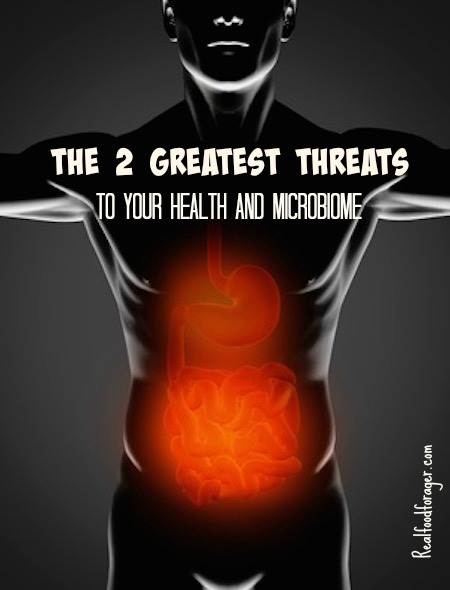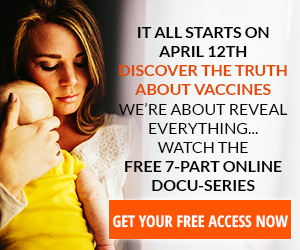Our modern way of life is geared towards making things easier for us – but with this convenience comes some unexpected side effects.
Modern technology has developed many ways to increase food production, package and process food for that quick meal. We now have hybridized plants that are much different from the plants of our ancestors. Now we also have genetically modified plants that can supposedly resist disease, herbicides and drought.
Glyphosate is a Threat to Health
However, we now know that glyphosate, the leading chemical in Monsanto’s Roundup is deadly for the following reasons:
- Glyphosate is a non-selective herbicide that was patented in 1964 as a strong metal chelator. That means that it grabs hold of elements and makes them unavailable.
- In 1974 Monsanto registered glyphosate as an herbicide. It binds up calcium, cobalt, copper, iron, manganese, magnesium, nickel, boron and zinc.
- Glyphosate disrupts plant physiology so that they cannot grow and can’t defend themselves against disease. The plants die as a result of the diseases they may acquire — indirectly from the glyphosate.
- Perhaps the worst aspect about glyphosate is that it is systemic. It takes only one drop sprayed on any part of the plant and it goes throughout the entire plant. A minimum of 20% of glyphosate that hits the foliage is exuded through the plant’s root system directly to the soil. It stays in the soil, and has been found pervasive throughout the environment and in the bodies of infants, children and adults.
- Wheat growers (and sugar beet growers) have adopted the practice of spraying the entire crop with glyphosate as a desiccant, days before harvesting, in order to make it easier to run through the harvesting machines. This puts tons more pesticide on most commercial wheat and sugar beet products (refined white sugar) and exposes the entire population to the damaging effects of glyphosate.
- Additionally, there seems to be a synergistic effect against the human immune system when wheat (glutin) and glyphosate is ingested. It appears to cause a more powerful effect against human gut bacteria.
Why You Should Avoid Glyphosate
Glyphosate kills gut bacteria.
That’s what it does – it is a pesticide, herbicide and an antibiotic.
Glyphosate is an immediate threat to your microbiome.
When people eat foods that have been treated with glyphosate – which is endemic in the modern food supply – they are ingesting a powerful chemical that kills gut bacteria.
This leads to chronic inflammation. We are in an epidemic of chronic inflammation, which is the root cause of many diseases. Inflammation is an immune system response with 80% of the immune system residing in the gut.
Chronic inflammation, at the cellular level, is the shutdown of the anti-oxidant system, and loss of communication between cells. This leads to an inability to repair on the cellular level.
You can never heal and seal the gut – heal from leaky gut – if you are eating foods with traces of glyphosate.
A recently published study in the journal Cell Host & Microbes, explored the question of whether it is genetics or diet that drives changes to the gut microbiome.
The researchers found that diet was the more important driver of microbiome diversity – not genetics.
If you are eating the Standard American Diet (SAD) you are getting a lot of glyphosate in your gut. Perhaps you have noticed some symptoms or perhaps you have or know someone who has a chronic health condition that may be related to consumption of glyphosate.
Eat organic and grow your own food if you can.
Toxicology Through the Lens of the Human and Microbial Communities
With our ever-expanding knowledge about how the colonies of microbes work in our body, we have discovered that everything that affects us – affects our bacteria.
When we are exposed to toxins in the environment or through food, our bacteria are the first to see the problems and they are there to respond.
Environmental chemicals such as glyphosates as explained above, phalates, BPA, medications and other toxicants not only affect human cells and organ systems (endocrine disruption), they also disrupt the colonies of microbes that we host.
In particular, medications should be reevaluated to assess each individual microbiome and whether or not it is appropriate for this person. For instance the commonly used drug, Metformin, has been found to change the gut ecology in both positive and negative ways. This is important information to gather on all medications.
Antibiotics are an Assault to Your Microbiome
Interestingly, here is a study about how the microbiome of one man changed dramatically after taking just one course of antibiotics. In this study published in the online journal Gut, Andres Moya et al, followed a man who was treated with antibiotics for an infection in his pacemaker. He took antibiotics for two weeks and survived the infection. However, a look at his gut microbes showed their survival to be less than stellar.
Over the treatment period of two weeks they collected stool samples every few days and then a final sample 6 weeks later. Through DNA analysis, they identified the various species in the stool, as well as other genes that the bacteria controlled.
Beneficial Bacteria Under Attack
The researchers found that the entire microbiome acted like it was under attack in the following ways:
- The bacteria started to release defense mechanisms as shields from the chemical antibiotics.
- The bacteria shut down any activities as a way of preserving energy.
- The bacteria shut down vitamin production for the host as well as reduction in many metabolic activities that our friendly bacteria perform for us such as, the transport and metabolism of bile acids, cholesterol and hormones.
- This leads to breakdown of metabolites which can build up and lead to disease.
- These findings indicate that the bacteria are one step ahead. They identify a threat and they take immediate steps to survive.
The investigators noted that these important host–microbial interactions were found to significantly improve after antibiotic treatment ended.
Major changes in the activity and population of the microbiota were noted at days 6, 11 and 14, after the initiation of the therapy. During this time some populations of species were dramatically reduced only to reemerge days later (however at reduced numbers), and other species were reduced for good.
The researchers found that broad-spectrum antibiotics result in a significant reduction in Bacteroidetes and a concurrent increase in Firmicutes (the bacteria associated with obesity).
Antibiotics can be life savers, but they should be reserved as a last resort – not given out as candy and certainly not in the feed of lifestock!
How to Nourish Your Microbiome
- Try not to use antibiotics at all or only when it is clearly indicated. Medical doctors are still giving out antibiotics like candy. Always question whether or not it is absolutely necessary. There are many home remedies, superfoods and supplements that can be used when appropriate.
- Don’t eat the meat or drink the milk of feedlot animals. They are fed antibiotics as part of their daily feed and it ends up in their tissues and milk.
- Nourish your gut bacteria with cultured and fermented foods that add probiotics to your diet through food.
- Take a good probiotic supplement if you are not eating enough fermented foods and/or recovering from an illness — chronic or otherwise.
- Don’t be too clean – exposing your body to bacteria engages and develops the immune system. Use only non-toxic cleaners and personal care products that won’t kill you bacteria.
- Nourish gut bacteria with prebiotic foods that contain resistant starch and fiber.
- Eat organic as much as you can.
Get the Most Current Information about the Microbiome
Are you as fascinated by the microbiome as I am? Are you hoping for a cure through this new research explosion?
Learn how to make bone broth and soups full of collagen and gelatin in my ebook Beyond Broth – on sale today!
Check out my newest ebook, Heal Your Microbiome Optimize Your Health – on sale today!
Like this article? Get many more and tons of information and instructions on using grain free flours in my fantastic kindle books. You don’t need a kindle to read them, as Amazon offers a FREE reader for all devices, on the sales page for each book.
Grab my kindle books here!
Grain Free Paleo Breads
Grain Free Paleo Snacks
Grain Free Paleo Desserts and Treats
These recipes are suitable for Paleo, SCD, GAPS and all grain free eaters.











